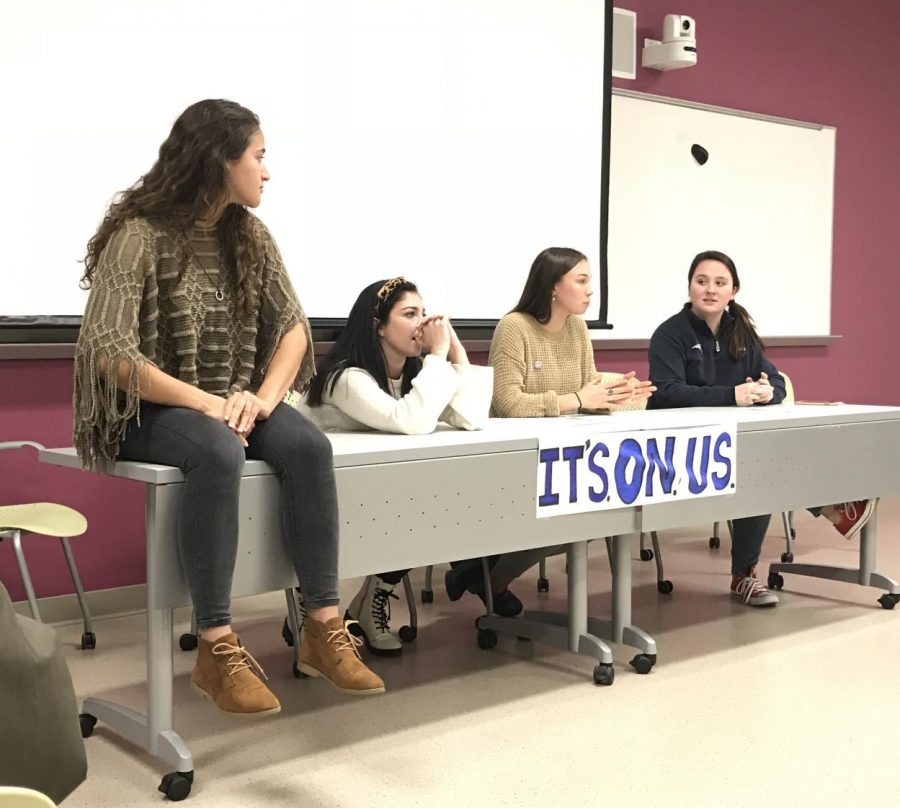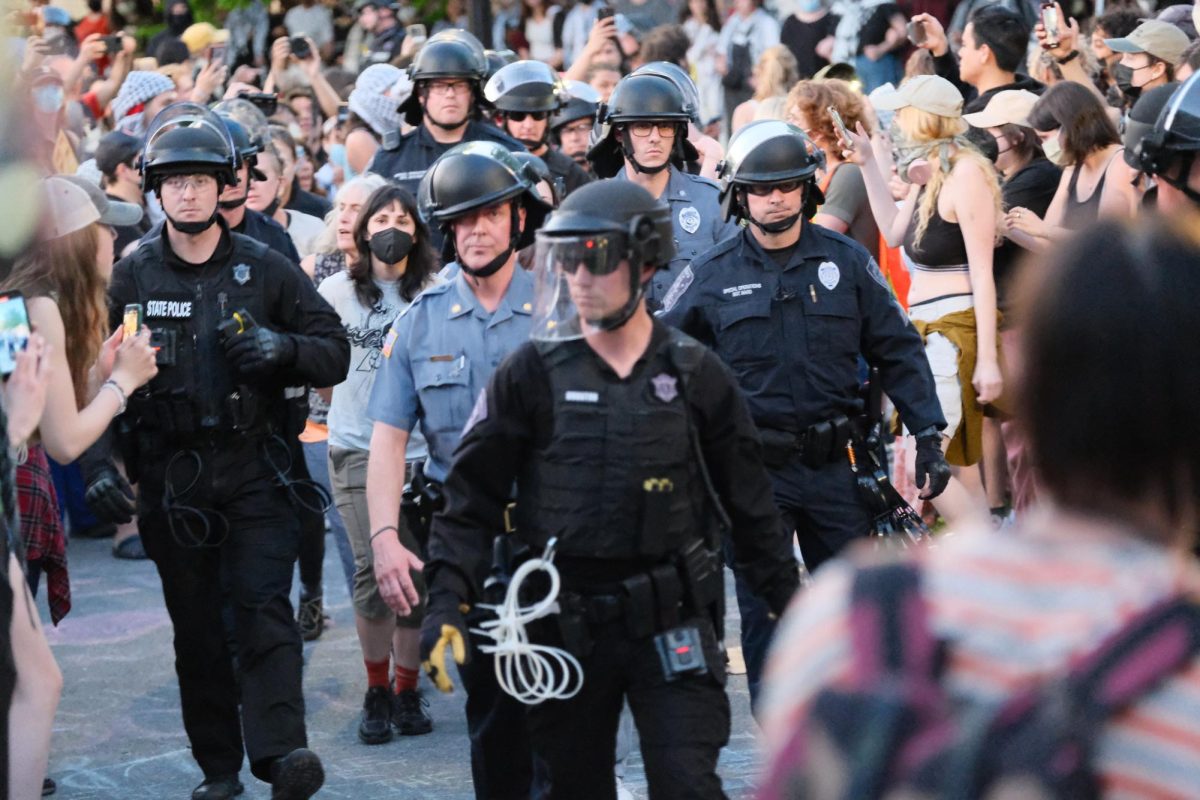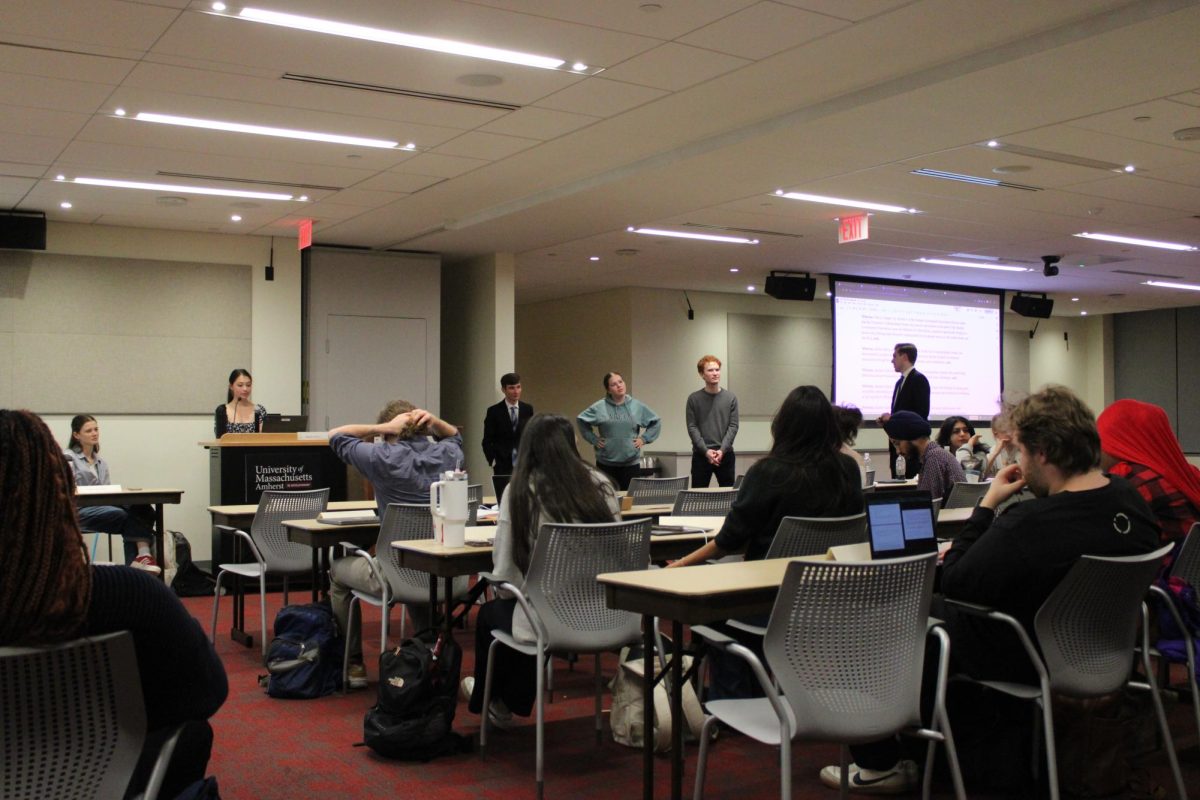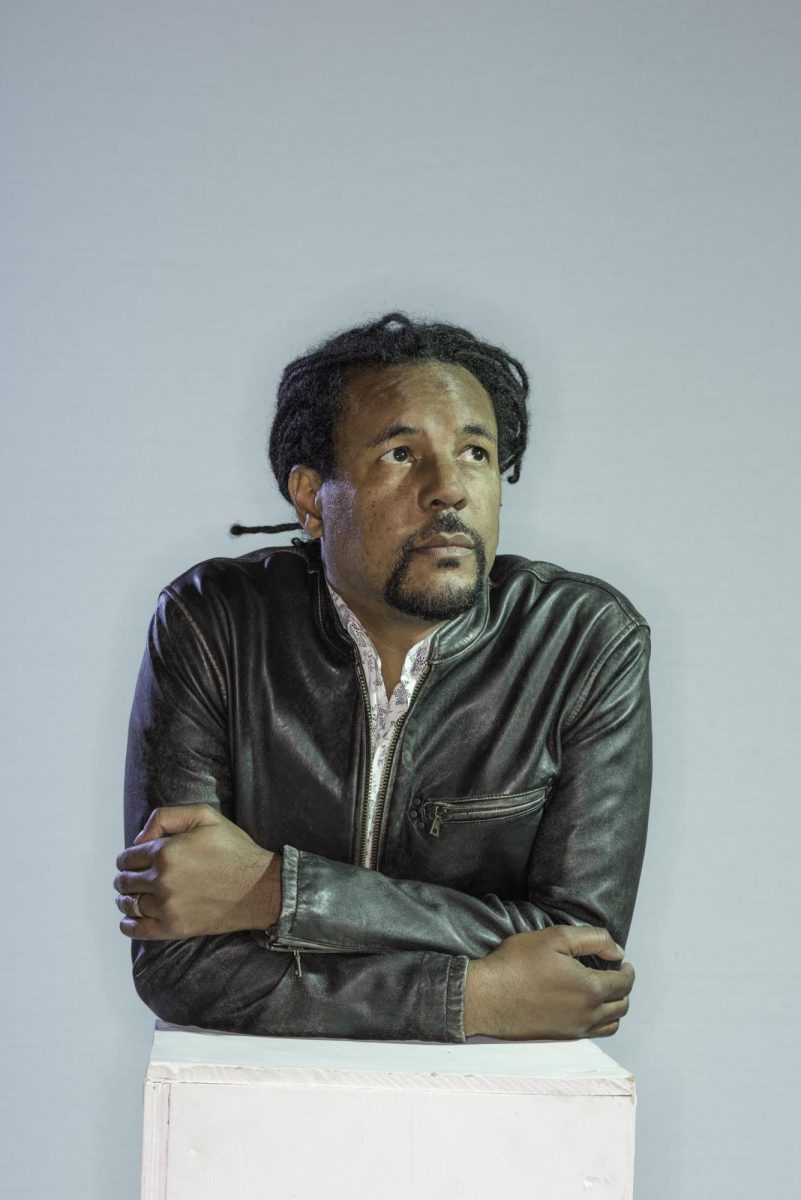The University of Massachusetts chapter of It’s On Us recently wrapped up its week of action, where they aimed to break the silence on sexual assault.
It’s On Us is a national organization that strives to combat sexual assault on college campuses by training the next generation of student organizers and focusing on prevention education.
The week-long pledge drive culminated on Thursday in the Integrative Learning Center where over 30 students heard messages of empowerment, holding people accountable and changing the campus climate of sexual assault.
The event opened with Nora Gallo, the outreach education coordinator for It’s On Us, and Sophia Ventura, the group’s president, discussing the national It’s On Us pledge.
“If you haven’t, I definitely recommend taking it because it is pledging that you recognize that non-consensual sex is sexual assault, that you’re identifying situations in which sexual assault may occur, that you will intervene in situations where consent has not and cannot be given and that you’re creating an environment at UMass Amherst where sexual assault is unacceptable and where survivors are supported,” Gallo said, a senior dance major.
They also explained how UMass is still in the “red zone,” a “period between August and November, so we’ve been it for a little bit, and this is where over 50 percent of campus sexual assault occur,” said Ventura, a junior double majoring in economics as well as social thought and political economy.
“I think this implies a lot about the lack of education that students have coming into college about consent,” she said.
A panel discussing the idea of changing culture through education then came together. It was moderated by Gallo and consisted of Ventura; Kenan Slade, a junior natural resource conservation major and vice president of Alpha Epsilon Pi; Alexandria Moynihan, a senior psychology major; Olly Kelly, a social thought and political economy and women, gender and sexuality studies double major; and Brendan Gibbs, a senior psychology major.
Kelly, a member of UMass Students for Reproductive Justice and the Not Ready for Bedtime Players, took the lead on this topic and explained how recognizing other people as sexual beings and having conversations about education creates a culture where people take responsibility.
“I think having these conversations kind of foster more conversations or thought around it and the more you’re talking about it, it’s more prevalent that these things aren’t taboo or weird and that these things happen and need to be talked about to actually be addressed,” Kelly said.
Slade added education programs should be started to help students in years to come and said, “I think that it’s important to really be engaged in fostering that talk because that talk really needs to be had, and if it’s not had, nothing’s gonna change.”
The group also talked about sexually transmitted infections and the stigma around testing, navigating hookup culture and active bystandership.
A survivor then shared her story of the process of reporting the assault, pressing charges, confronting her attacker in court and being there for his sentencing.
The next portion of the event was Moynihan interviewing Gallo about survivor support.
“So, after my assault, I refused to get help for months and I think that that ended up having a very negative impact on me,” Gallo said. “I ended up having to withdraw from many classes and in the spring, I ended up going to CWC, which is the Center for Women and Community.”
Gallo explained she would go to CWC twice a week and felt relieved she had found a space where she could talk about her experience and how it impacted her life.
“It felt this this thing that had silenced me for so long … it was like a weight being lifted off my chest,” she said.
Also, during the section of the event, Gallo listed resources survivors have, including CWC, the Center for Counseling and Psychological Health, the UMass Police Department, Amherst Police Department, Safe Passage in Northampton, University Health Services and It’s On Us.
“We don’t obviously provide therapy sessions, but if you’re ready to heal … Becoming an advocate and becoming an activist at UMass and across the state and now starting to do work across the country, that has been the most healing thing for me,” Gallo said, before noting not every survivor may be ready to advocate.
Members of the It’s On Us executive board then took questions from the audience and encouraged discussion in the room. Topics brought up included continuous consent, STI testing at UHS, rejection, toxic masculinity and diffusion of responsibility.
The final segment of the evening was a call to action and explained how attendees can make a positive impact by supporting two bills, which Gallo testified for in front of the State House earlier this year.
The first bill is H.1208/S.736, “An Act requiring sexual misconduct climate surveys at institutions of higher education.” The bill would create a task force of experts, students and public and private university representatives to write a standard campus climate survey that is distributed to every institution of higher education in Massachusetts.
The second bill is Bill H.632/ Bill S.706, “An Act relative to sexual violence on higher education campuses.” This bill would hold Title IX to the Obama administration’s standards and regulations where, as Sonia Guglani explained in a previous article in the Massachusetts Daily Collegian, “perpetrators need to be held accountable, there needs to be training and support on different campuses and the Title IX rules need to be shown publicly on university websites.”
Ventura ended the event by stating, “As you’re more empowered with all this information, most importantly, hold yourself accountable as well as holding your friends accountable. Changing campus culture is about taking that initiative to change that culture within yourself. And every day, every weekend you’re out, just be more conscious of it, and it’s changing everyone’s life slowly but surely.”
Abigail Charpentier can be reached at [email protected] and followed on Twitter @abigailcharp.




















